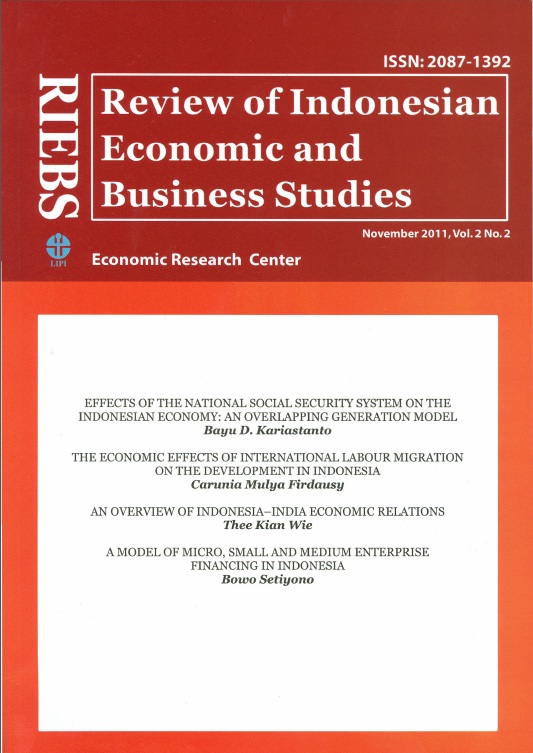
Author : Carunia Mulya Firdausy
Abstract :
International labor migration has become an integral part of the development process in Indonesia. In fact, there has been an indication that international labor migration from Indonesia to East Asia and the Middle East has given social and economic contributions to the Indonesian economy. The major reason to migrate has been mainly to seek employment opportunities and higher wages. This paper, using data and information gathered from the existing literatures and my studies, aims at discussing the economic effects of international labor migration on the development in Indonesia. It is argued that international labor migration from Indonesia has given economic effects. These effects include foreign exchange earnings, reduction of the incidence of unemployment and poverty. However, the economic effects of labor migration in terms of per capita remittance to the economy
is very much low. Therefore, in order to maximize the economic contribution of international labor migration on development, the government must shift the supply of labor migration from the unskilled labor type category to more semiskilled and skilled type labor categories. This can be done try increasing the quality of workers’ resources through education and training. The importance of this labor migration policy shift is also critical to reduce inappropriate treatment and other harassment receivedtry the migrant workers abroad and to increase the welfare of migrant workers.
Keywords: Economic effects, remittances, unskilled and semiskilled labor, host and home countries.

